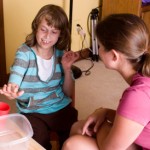
Our friends at Norah Fry in Bristol who are responsible for carrying out the work on the confidential inquiry into premature death in people with learning disabilities have asked us to let you know that the final report of the study will shortly be available and that there will be two opportunities to hear some [read the full story…]








